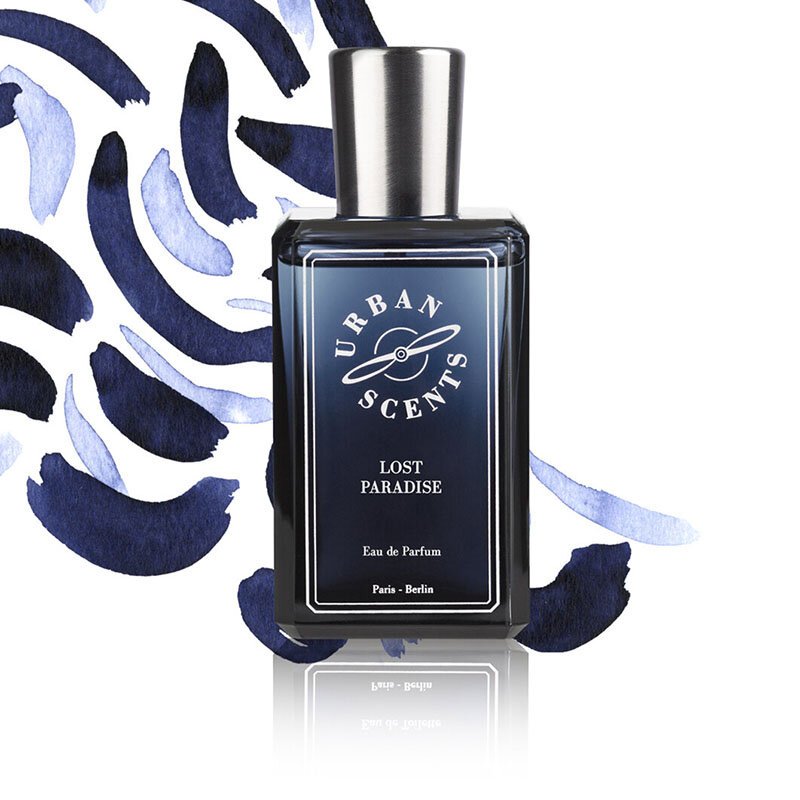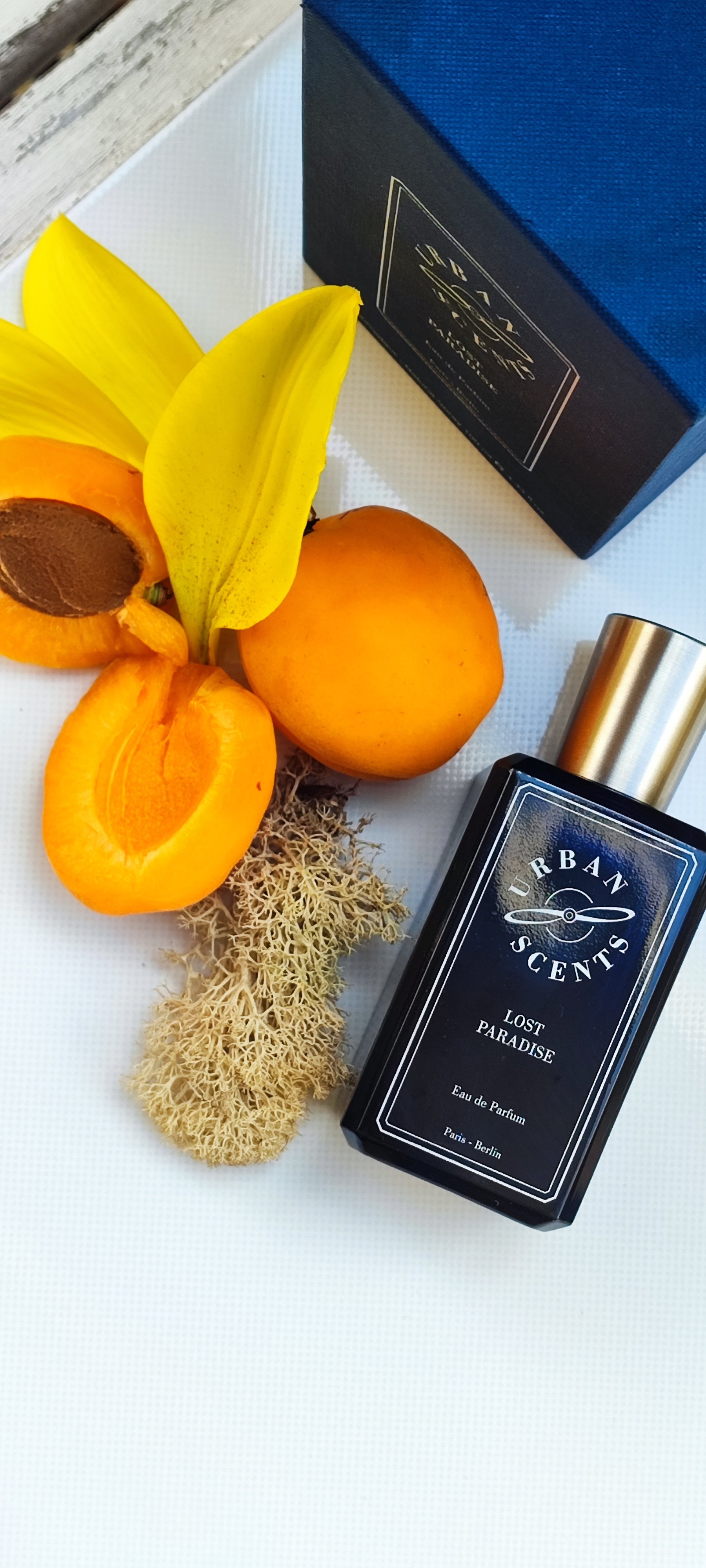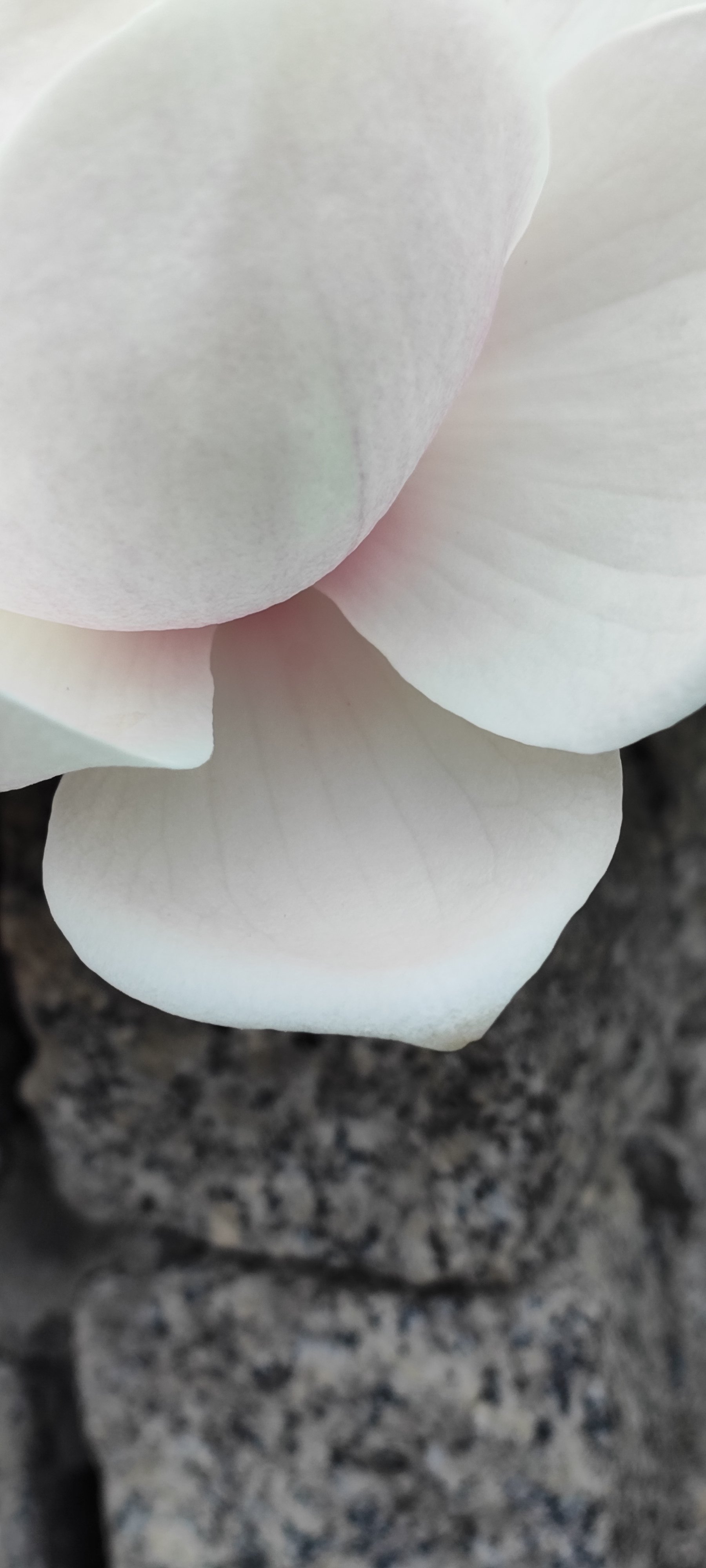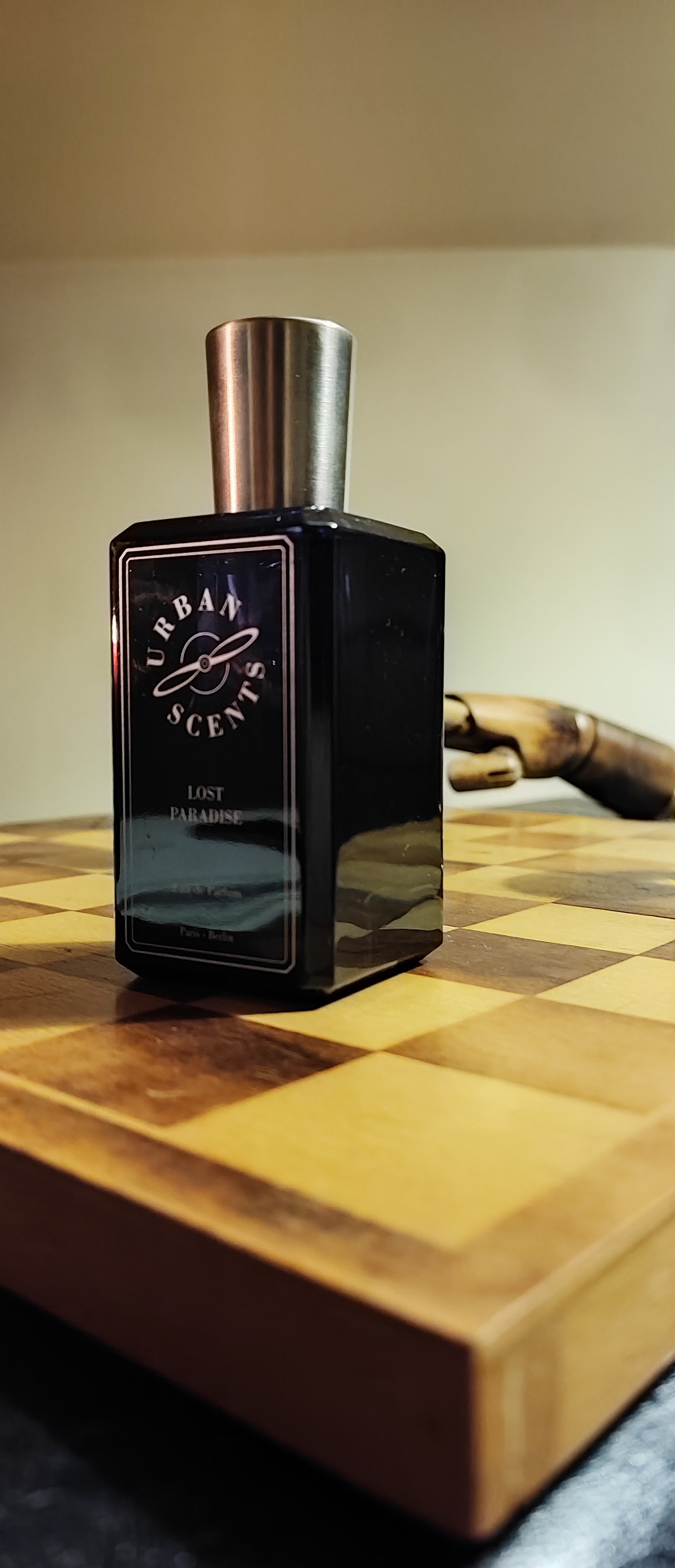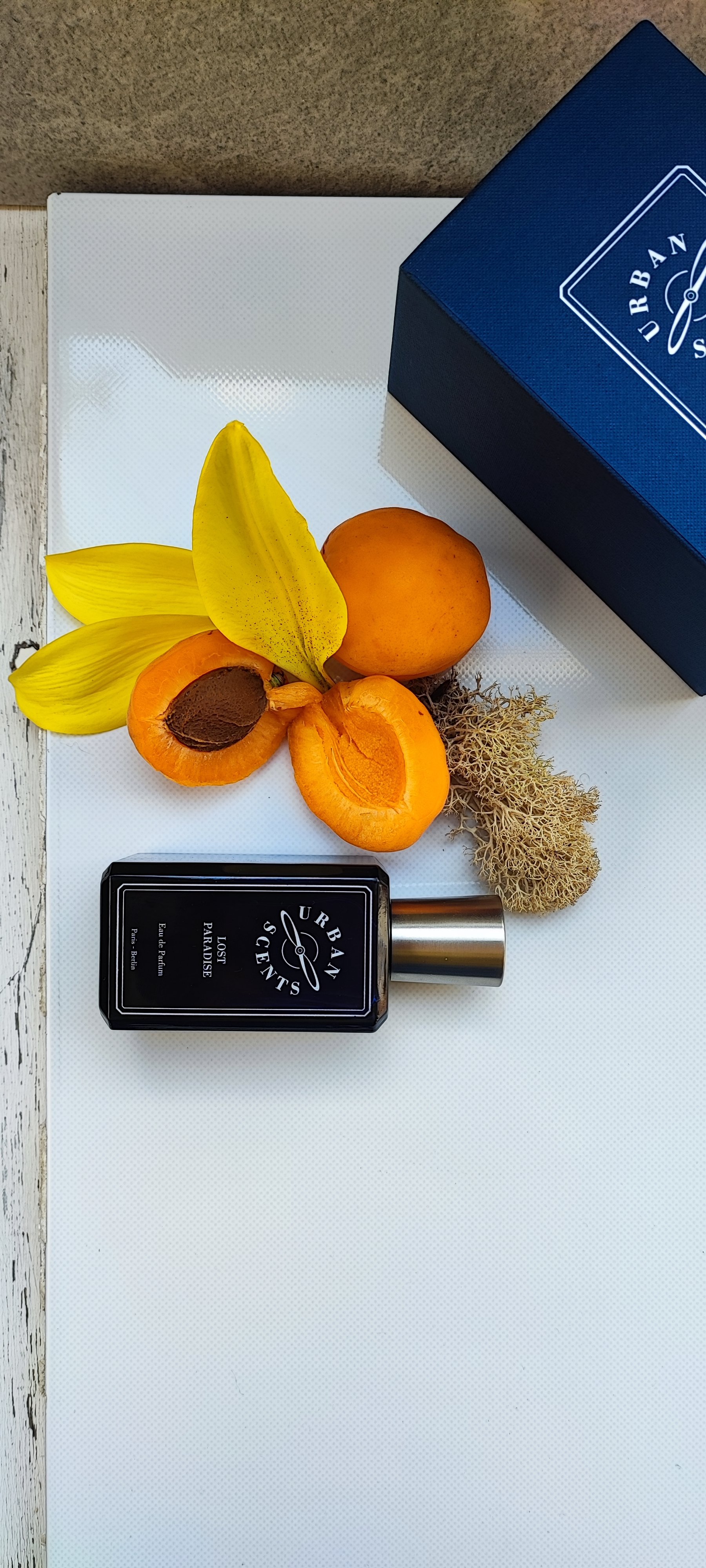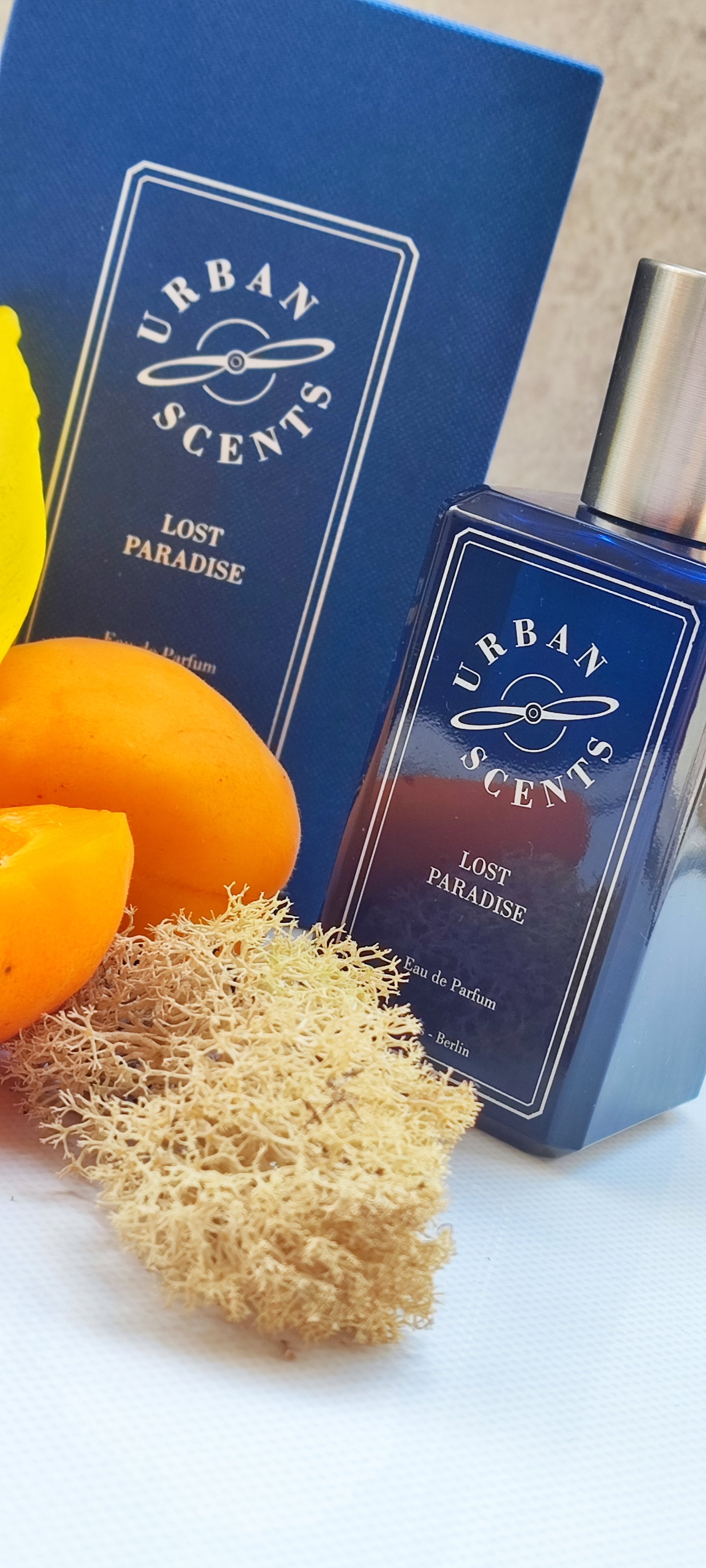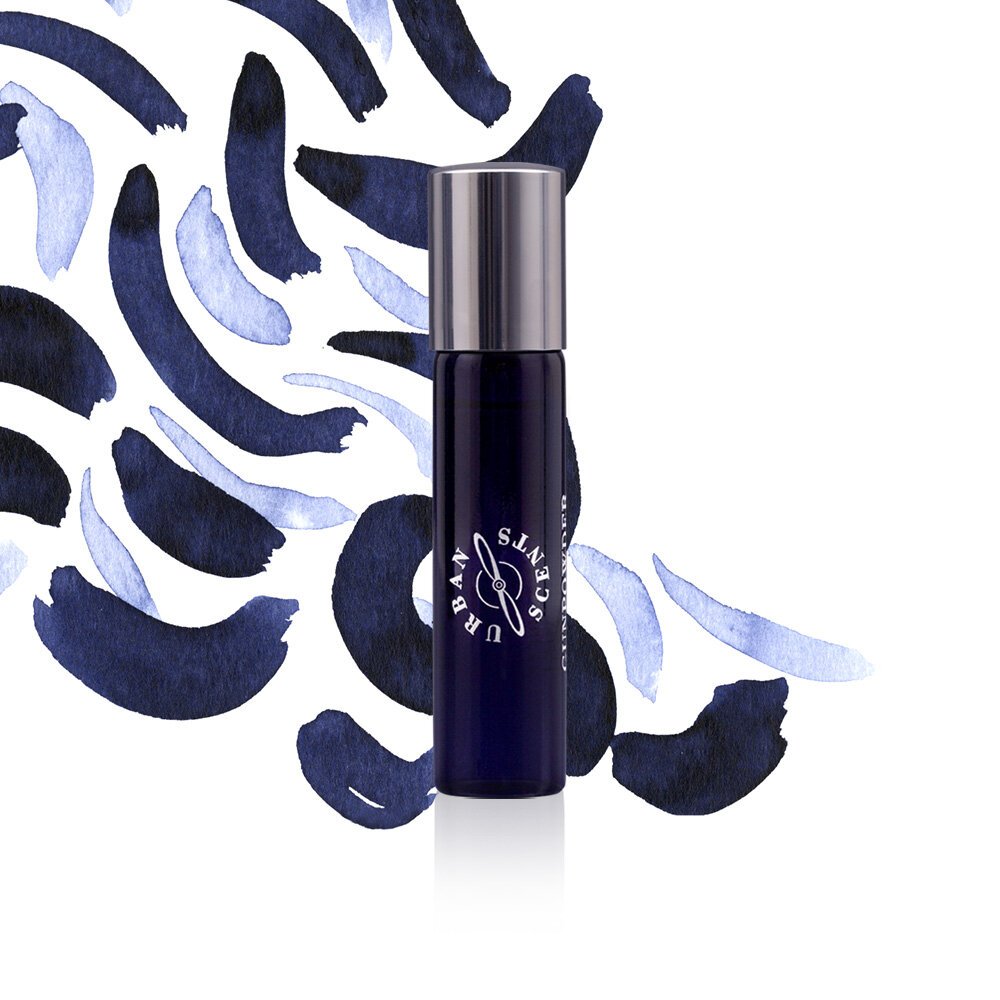*RECENZJA* - Urban Scents, Lost Paradise
Kiedyś pisałem, że gdybym był kobietą, nosiłbym głównie szypry. Od dawna już jednak fakt nie bycia wyżej wymienioną zupełnie nie przeszkadza mi w cieszeniu się tym wyjątkowym gatunkiem perfum. Szypr to dla mnie tak naprawdę synonim perfum. Daje mi o wiele więcej radości niż jego męski odpowiednik, nieco zbyt poważny i smutny w moim mniemaniu fougère. W szyprach znajduję nie tylko ukłon w stronę tradycji i przeszłości oraz niezrównaną elegancję, ale i ten radosny, letni blask. W końcu nie bez powodu rodzina ta nazwę swą zapożyczyła od słonecznej wyspy Cypr.
Nie wszystkie klasyczne szypry jestem w stanie unieść. Niektóre mają w sobie retro ciężar, który mogę tylko podziwiać. Są jednak takie – zakorzenione głęboko w XX wieku – które wręcz ubóstwiam na swojej skórze. Muszę tu wymienić klasyczną Miss Dior Original, sisleyowskie Soir de Lune czy Aromatics Elixir Clinique. Z bardziej współczesnych, tzw. neo-szyprów, przepadam za La Panthere Cartiera, klasyczną wodą perfumowaną Nomade Chloé czy cudownie świeżą Eau Dynamisante Clarinsa (tak, to też szypr!) lub mydlanym Exit The King od Etat Libre d’Orange.
Podczas genialnych warsztatów prowadzonych przez Marie Urban Le Febvre, perfumiarkę i założycielkę marki Urban Scents, miałem przyjemność odświeżyć sobie tej wiosny wiadomości na temat szyprowej rodziny, dowiedzieć się jak tworzy się szypry współcześnie, a potem poznać jej interpretację takiej właśnie kompozycji no i przepadłem z kretesem. Straciłem głowę dla Lost Paradise!
Kompozycja ta, o pięknej, zahaczającej o literaturę, nazwie wyszła spod rąk i nosa Marie w 2016 roku. Jest idealnym przykładem neo-szypru, który respektuje tradycję, ale podaje temat w na wskroś współczesny sposób. A do tego jest idealnym unisexem. Przepełnia to moje serce radością na myśl, że może więcej mężczyzn zainteresuje się tą zapachową rodziną.
Jak czytamy w materiałach marki, Lost Paradise miał być inspirowany latami 80 z całym ich przepychem, bogactwem i ciężkością. Twórczyni rzeczywiście udało się skomponować zapach o niesamowicie dobrych parametrach – jego trwałość na mojej skórze dochodzi do 10 godzin, otoczenie wyraźnie go wyczuwa (i komplementuje!), a ja przechodząc zostawiam ów legendarny i jakże pożądany w erze rozbuchanego konsumpcjonizmy ślad czyli sillage. Chciałoby się jednak ponownie powtórzyć, że przy całej asertywności tej kompozycji, ma ona charakter zdecydowanie przystosowany do dzisiejszych, odrobinę subtelniejszych czasów.
Lost Paradise otwiera się świetlistymi cytrusami. Kiedyś w formule każdego szyprowca musiała to być bergamotka, dziś perfumiarka sięgnęła po cytrusowy miks, który nie jest za słodki i pięknie wprowadza owocowy temat, bardzo silnie zaznaczony w tej kompozycji. Bo Lost Paradise to szypr kwiatowy, ale kwiaty jakich tu użyto – magnolia i osmantus, a także jaśmin – niosą ze sobą bezsprzecznie świeży i owocowy klimat. Magnolia to niezwykły składnik, który potrafi odurzyć swoją woskowością, ale i odświeżyć powiewem cytrynowej świeżości. Osmantus zaś to brzoskwiniowo-morelowe królestwo doprawione kropelką miodu. Jak się dowiedziałem na warsztatach aromat ten perfumiarka wzmocniła dodając akord suszonych owoców.
A co w każdym szyprze jest jego najsmakowitszą częścią, jego podpisem i sercem? Oczywiście mech i paczula. Ten niezbyt przymilny na pierwszy rzut nosa duet potrafi w połączeniu z innymi składnikami – owocami, kwiatami, drewnem, ambrą – wyczarować wyrafinowane cuda. I nie inaczej jest w Lost Paradise. Jego świeżość, owocowość i kwiatowość, którym towarzyszą lekka pudrowość i słodycz byłyby niczym szczególnym gdyby nie podstawa z mchu i paczuli oraz celowe przedawkowanie piżm. Dzięki temu zabiegowi kompozycja nabiera perfumowego sznytu i wysublimowania. I tu jeszcze jedno wspomnienie z warsztatów z Marie. Naturalny mech dębowy ze względu na swoje alergizujące właściwości to już rzadkość we współczesnych perfumach. Co zastąpiło go w palecie perfumiarza? Molekuła evernyl! W pełni syntetyczna, stworzona w laboratorium, dzięki talentowi perfumiarza – w tym przypadku Marie – ożywająca na skórze gdy odpowiednio zmieszana w formule.
Lost Paradise przechodzi lekkie i gładkie zmiany na skórze w miarę noszenia. Początkowa cytrusowość stopniowo się wygasza, na rzecz dominujących w bazie zielono-drzewno-ziemistych składników. Od początku jednak wiadomo z jakim zapachem będziemy mieli do czynienia, składniki nie wytracają się też tak zupełnie do końca. I ja to właśnie lubię w perfumach – subtelne zmiany akcentów, raczej niż zamykanie pewnych drzwi by otworzyć inne. O trwałości kompozycji już wspominałem, ale dodać muszę, że Lost Paradise w żadnym momencie mi nie ciąży, nie przytłacza, a nosiłem go nawet w największe upały. Ta jego owocowa świetlistość zresztą, moimi zdaniem predestynuje zapach do aplikowania wiosną, latem i słoneczną jesienią. Okazja? Każda, tak naprawdę. Może z wyjątkiem tych stricte sportowych. Lost Paradise bardzo dobrze mi się sprawdził zarówno w pracy jak i na spotkaniu towarzyskim. Najbardziej lubię go jednak nosić dla samego siebie. Tak, to zdecydowanie zapach, którym lubię się rozpieszczać.
Więcej o marce Urban Scents i jej zapachach przeczytacie tu.
I once wrote that if I were a woman, I would mainly wear chypres. For a long time, however, the fact of not being one has not prevented me from enjoying this unique type of perfume. Chypre is a synonym of perfume! It gives me a lot more pleasure than its classical male counterpart - a bit too serious and and often too sad fougère. In chypres I find not only a nod to tradition and the past, as well as incomparable elegance, but also that joyful summery spark. After all, the family got its name from the sunny island of Cyprus for a reason.
Having said that I must admit that I am not able to wear all classical chypres. Some have a retro weight that I can only admire from a bottle. However, there are those – still deeply rooted in the 20th century - which I simply adore on my skin. I definitely have to mention here Miss Dior Original, Sisley's Soir de Lune and Aromatics Elixir from Clinique. Among the more modern, so-called neo-chypres, I love La Panthere from Cartier, original Nomade Chloé Eau de Parfum or the wonderfully fresh Eau Dynamisante from Clarins (yes, it's also a chypre!) and the soapy Exit The King by Etat Libre d'Orange.
During the brilliant workshop conducted this spring by Marie Urban Le Febvre, a perfumer and founder of Urban Scents, I had a pleasure to refresh my knowledge about the chypre family, learn how chypres are created today, and finally get familiar with Marie’s interpretation of the theme… and I was totally won over! Lost my head for Lost Paradise!
The beautifully named composition was concocted and released by Marie in 2016. It is a perfect example of a neo-chypre that respects tradition but gives the theme a thoroughly contemporary treatment. Plus it is a perfect unisex. My heart is filled with joy at the thought that thanks to such scents more men might get interested in this otherwise reserved for women fragrant family.
As we read in the brand's press release, Lost Paradise was to be inspired by the 1980s with all their splendor, wealth and heaviness. The creator did manage to compose a fragrance with amazingly good parameters - its longevity on my skin reaches up to 10 hours, people around can clearly sense it (and compliment it!), and as I pass, I leave this legendary and so desired in the era of exuberant consumerism trail, the famous sillage. I would like to repeat, however, that despite all the assertiveness of the composition, it has a character skillfully adapted to today's, slightly subtler times.
Lost Paradise opens with luminous citruses. Once the formula of every chypre had to feature bergamot; today the perfumer has opted for a citrus mix, which is not too sweet and which beautifully introduces the fruity theme, very strongly marked throughout the composition. Lost Paradise is a floral chypre, but the flowers used here - magnolia and osmanthus, as well as jasmine - bring with them an unquestionably fresh and fruity vibe. Magnolia is an unusual ingredient that can intoxicate with its waxiness, but also refresh with a breath of lemon freshness. Osmanthus is a peach/apricot paradise seasoned with a drop of honey. As I found out at the workshop, the latter was enhanced by the perfumer by adding an accord of dried fruit.
And what’s the tastiest part in every chypre, its signature and heart? Of course, the moss and patchoul combo! This duo, not overly friendly at first sight, can conjure up most refined miracles in combination with other ingredients - fruit, flowers, wood, ambergris. And it is no different in Lost Paradise. Its freshness, fruitiness and floracy, accompanied by light powderness and sweetness would be nothing out of this world if not for the moss and patchouli base also featuring the deliberately overdosed musks. Thanks to them, the composition becomes a perfume in its own right with all its sophistiacation and allure. Oh, and one more thing I remember from the workshop with Marie. Natural oak moss, due to its allergenic properties, is a rarity in modern perfumes today. What replaced it in the perfumer's palette? Evernyl! A fully synthetic molecule created in the laboratory which thanks to the talent of a perfumer - in this case Marie – comes alive on the skin when properly blended into the formula.
Lost Paradise undergoes light and smooth changes with wear. The initial hesperidic freshness gradually fades away in favor of the more green, woodsy and earthy ingredients in the base. Right from the beginning, though, one knows what kind of smell it is. The particular ingredients do not disappear completely, they resonate. And that's what I like about perfumes - subtle changes in accents, rather than closing one door shut to open another. I have already mentioned the superb longevity of the fragrance, but I must add that Lost Paradise is never overpowering or overwhelming, even when worn in the heat. In my opinion, its fruity luminosity predestines the fragrance to be enjoyed mainly in spring, summer and sunny autumn. Occasion? Any, to be honest. Maybe with the exception of strictly sport ones. Lost Paradise proved to be a very good companion both at work and at social evening gatherings. Still, I like to wear it most for myself. Yes, it is definitely a fragrance that I like to pamper myself with.





